ABOUT US 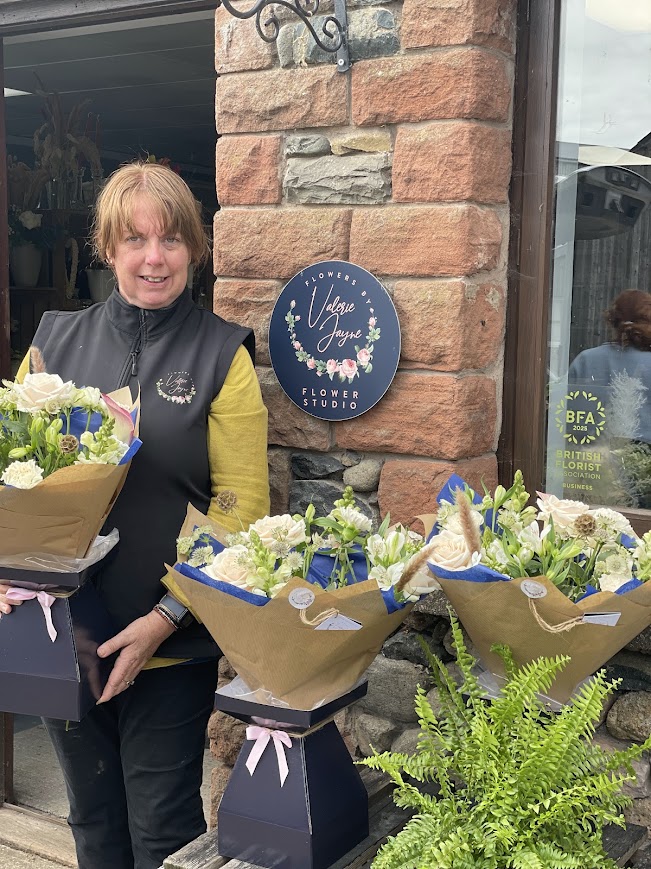
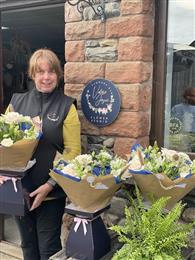
Flowers by Valerie Jayne run by Valerie Edgar based in the historic market town of Penrith. Set on the Picturesque North-Eastern edge of the Lake District. With Lake Ullswater a mere 5 miles from the front door.
Flowers by Valerie Jayne - The Home of Thoughtful Floristry
This phrase, ‘Thoughtful Floristry’, came about when a customer commented that he had chosen to come to me because of the transparency and thoughtfulness of our practices. I feel that this is a most accurate description of the business - I strive to strike a balance between commercial floristry, sustainable and ethical practice without compromising on quality of materials and workmanship that goes into each design. Please do speak to me about sustainable and ethical practice . Ican souce British flowers and imports that are grown with postivie ethical impacts and consideration to the land they use.
Training and Development
As a Professional Florist I am a member of the Institute of Professional Floristry, and the British Florist Association. these professional bodies champion the path of British Florists I put a huge value on the benefits of continuing my training and development in the art of floral design, expanding and perfecting range of floristry techniques. a
Valerie’s Background
After leaving school in Penrith, I really wanted to go into jewellery design and gained a place on a course in Liverpool, I eventually decided not to go - instead I trained as a teacher receiving a BA (HONS) in Education with Qualified Teacher Status from Sunderland University. Whilst I loved being in the classroom there was always a burning passion to do something more creative.
It’s now nearly 20 years since I attended my first floristry course at Newton Rigg College Penrith. I have since gone on to gain my City and Guilds Level 4 Higher Diploma (ICSF), I am currently in my final year of study for the City and Guilds Level 5 Master Diploma (NDSF). Attended courses with world renowned Master Florist Gregor Lersch. As well as running this business I have taught floristry at Newton Rigg since September 2015 until the college’s closure in July 2021. In summer 2024 I was awarded Bronze for my entry into the UK Floristry judges Guild.
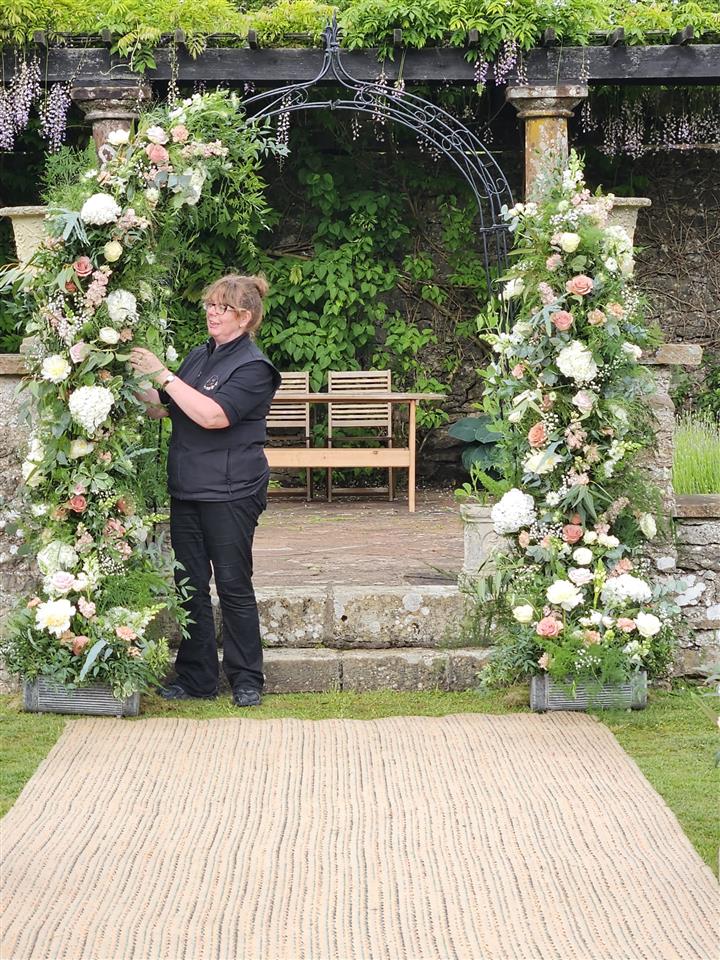
 How ‘Thoughtful Floristry’ came about
How ‘Thoughtful Floristry’ came about
Attending the Vision Conference In Spring 2019 hosted by the British Floristry Association became a huge turning point for the direction of my business I listened to some pretty inspirational speakers, amongst them was Jo Munson from Smith and Munson -British growers of high quality tulips and lilies - after the talk I found Jo, who answered all sorts of questions on how they grow their beautiful stems. The Geography student in me from my Uni’ days was reawakened -all that learning about the ‘enquiry approach’ suddenly dropped back into place. Call it a ‘lightbulb moment’ if you will. (thanks Liz Lewis - wherever you may be!) .
I came home with a renewed passion and fire in my belly to change practices and question everything! I set out on a journey to reduce waste, consider the ethics of the materials I source, reduce single use cellophane and poly-based items. The result is I make decisions based on delivering the best designs to my customers, giving the customer choices, researching the products I use (I’ll often phone manufacturers or speak to growers directly to enquire about their companie's ethos etc)
And so with a huge amount of questions charging around my head I set about a series of aims to change my business 1 step at a time.
How we are making a commitment to being more sustainable…
Step 1: Reduce Cellophane
I now paper wrap my hand-tie bouquets and leave the stems bare or offer a return or reuse vase scheme, or a stemgem vase created from recycled waste plastics can be added onto your bouquet as an alternative. If a customer really wants a cellophane bubble, of course it can be done. If I need to, I will be purchasing more eco-friendly cello from now on but I still haven’t used all the roll I had when I made the decision to change.
Step 2: Consider growers & origins of flowers
This is a multifaceted and complicated decision which will have whole discussion page dedicated to it. I buy predominantly from a trusted, local wholesaler who provides fresh and sundry materials from around the world via the Dutch Market. I also accesses British growers and suppliers such as Smith and Munson, Fellside Flower Company, Irish Green Guys and Flowers by Clowance.
Where possible I buy from MPS certified growers however not all fresh materials are marked in the same way I work hard to get the best quality for my customers at a realistic price.
Step 3: Reducing Floral Foam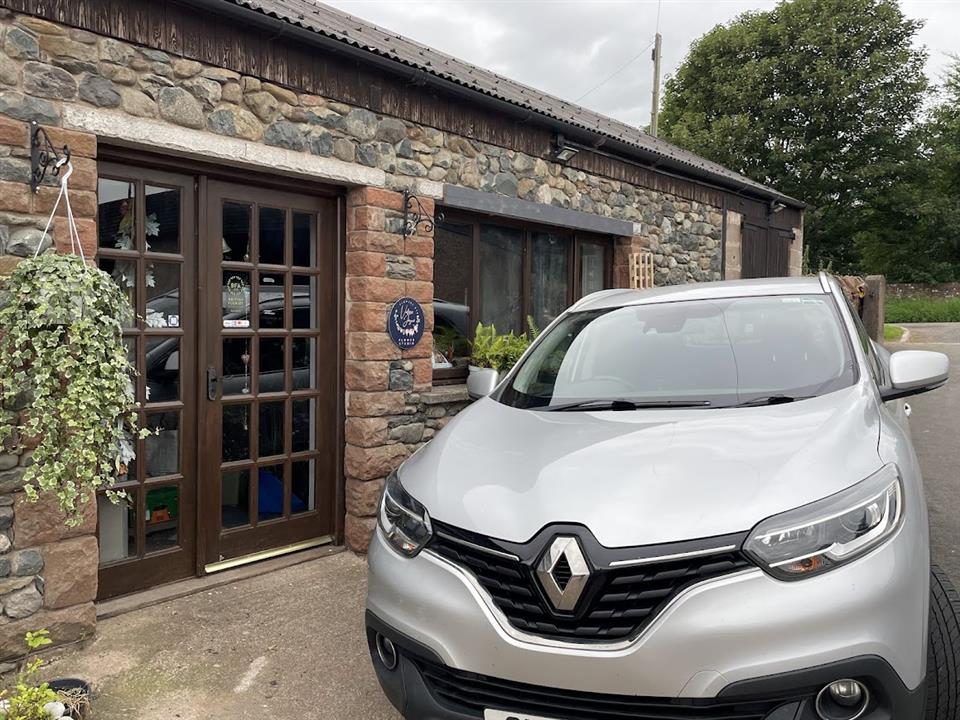
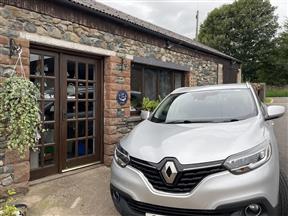
After contacting the company directly I was one of the first UK florists to purchase Agra- wool blocks and use it with my students at the local college to set up design at the wonderful Home and Gardens Event in 2020. There are lots of other alternatives and I like to weigh up the positives and negatives of each – I am not sold on idea of using moss as the most environmentally-friendly alternative - I will have to look into this more (yep, I really do question it all!) I feel we have to be very careful as an industry not to deem the practice of ripping up the base layer of our ecosystems as being ‘sustainable’. The message needs to be very carefully managed. As for floral foam, no its not ideal but I do still use it when it is needed. I have created a lot of designs into willow into mesh, sand, stones and I have even worked directly into the earth. Ithere alot of new and exciting developments occurring at the moment - Theres renewal - a new one from Oasis and 'Phoam@ which has been developed by the lovely Dundee Butcher (I got to talk her at the Interflora World Cup as well as talking to Kristen Van Dijk about her invention - oshun pouches.
Step 4: Reduce Poly-Based Ribbons & Sticky tape
I offer alternatives to the traditional satin ribbons whilst they are lovely (and I struggle to stay from the prettiness of some) I do offer my customers the alternative. I have natural Raffia, linen and jute ribbons. I also have a gorgeous range of recycled ribbons created from the offcuts of local upholsterer Ashleigh’s Fine furnishings based in Stainton.
I also now use Washi tape instead of sticky-tape (paper based alternative) I’m still experimenting with these, getting a tape with the correct ‘stickiness’ can be more difficult than it sounds! I have just ordered it in more colours (brown does not suit everything!) so hopefully the range will expand!